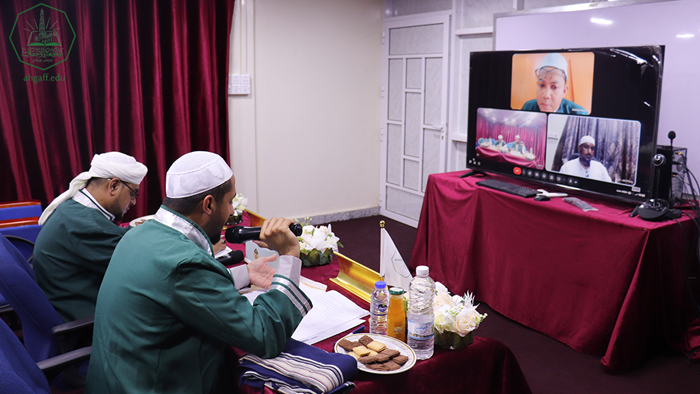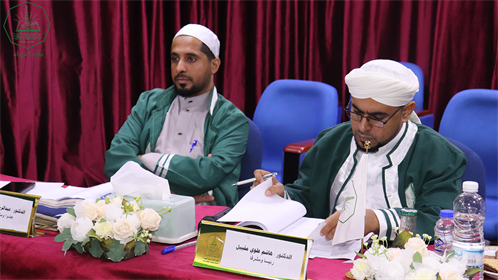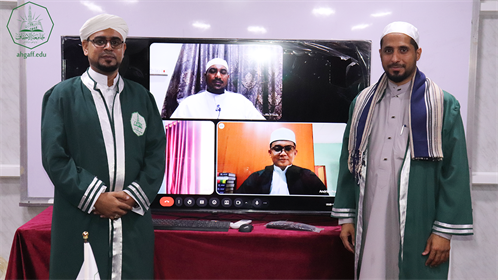Master’s Thesis Defence on the Use of Circumstantial Evidence in Proving Hudud Crimes in Islamic Jurisprudence and Yemeni Law at Al-Ahgaff University
- 2/7/2025
- University News

Mukalla / University Media
On Tuesday, the Faculty of Postgraduate Studies at Al-Ahgaff University hosted the academic defence of a master’s thesis presented by Indonesian researcher Muhammad Andrian Pratama, titled:
"Proving Hudud Crimes through Circumstantial Evidence in Islamic Jurisprudence and Yemeni Law: A Comparative Study."
The session was attended by a distinguished group of academics and specialists in Islamic jurisprudence and legal studies.
The examination and evaluation committee consisted of:
- Dr. Hashim Alawi Muqaibel, principal supervisor and session chair (Al-Ahgaff University),
- Dr. Abdulrahman Omar Bamakhsh, external examiner (Imam Al-Shafi’i University),
- Dr. Hassan Birk Basioud, internal examiner (Al-Ahgaff University).
The thesis focused on the legal principles and rulings surrounding the use of circumstantial evidence in proving Hudud (fixed) crimes. The study was divided into two main chapters:
- Chapter One addressed the concept of legal proof and its methods in Islamic jurisprudence and statutory law.
- Chapter Two examined the types of circumstantial evidence and its role in establishing Hudud crimes, offering a comparative analysis between the Islamic jurisprudential perspective and the Yemeni legal system, and highlighting the points of convergence and divergence between the two.
The research concluded that the use of circumstantial evidence in Hudud cases presents a range of both theoretical and practical challenges, particularly regarding its acceptance as an independent form of proof. It also emphasized the differences between Islamic Sharia and Yemeni law concerning the admissibility, conditions, and limitations of such evidence.
Among the key recommendations of the thesis were:
- The need to develop and refine legislative provisions concerning circumstantial evidence in Yemeni law to better align with the unique nature of Hudud crimes.
- Encouraging further applied research to clarify the areas of integration and distinction between Islamic jurisprudence and modern legal systems in this field.
At the conclusion of the defence, the committee commended the researcher for the scholarly effort and originality of the topic, and recommended awarding Muhammad Andrian Pratama the degree of Master of Arts in Fiqh and Usul al-Fiqh, with distinction.
The researcher expressed his sincere appreciation to the examination committee and supervisors for their valuable support, guidance, and cooperation throughout the research process.






